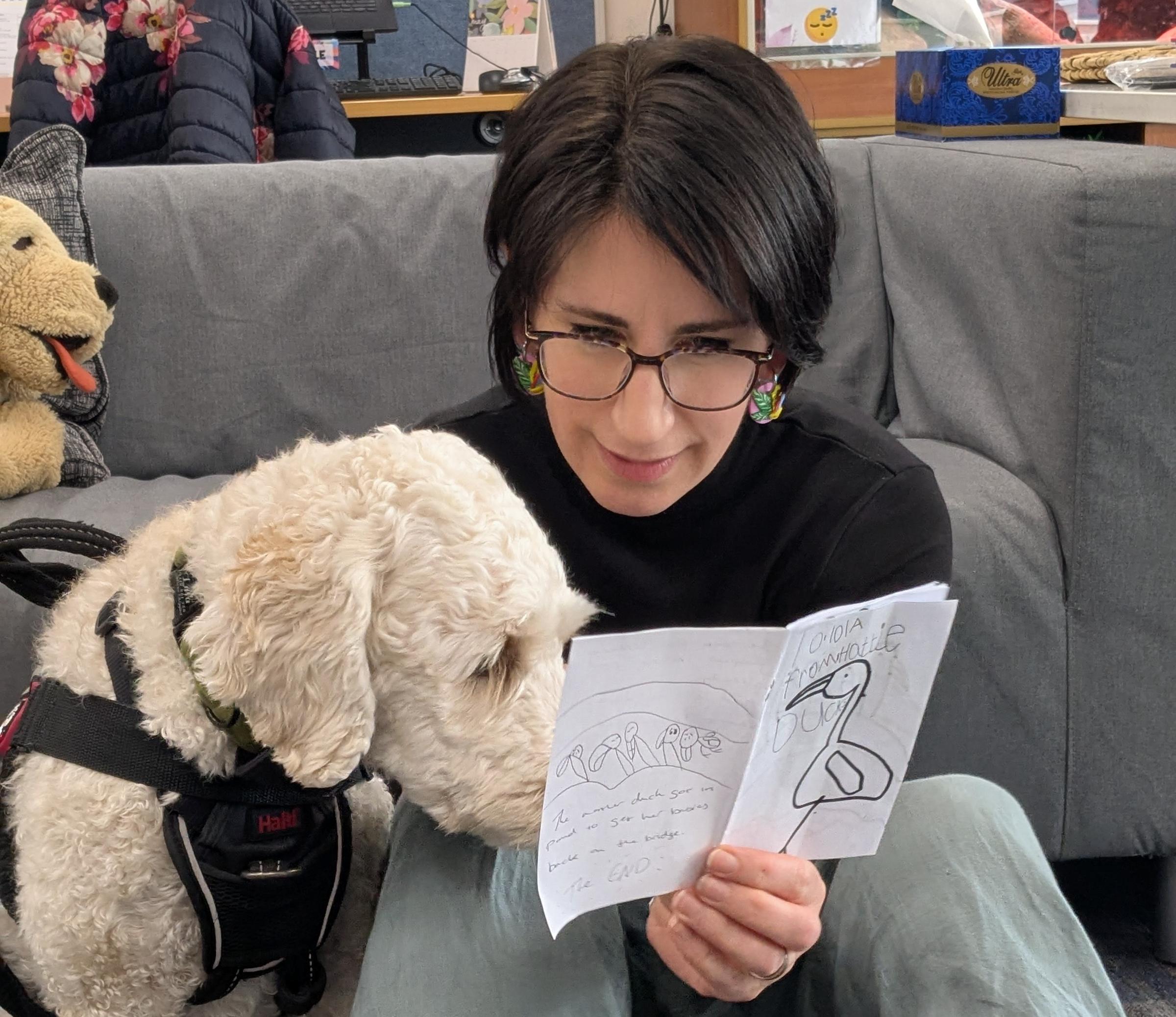Wellbeing

Flourishing Through Play
In the counselling space, our guiding focus is Wellbeing for Learning, the idea that students need to be well to learn effectively. As educators, parents and guardians, we all have priorities that shape our approach to student success. Take a moment to reflect on what you value most.
Research by VanderWeele and Case (2020) highlights school-based practices that promote academic flourishing. Surprisingly, the most impactful elements weren’t intensive academic interventions, but rather moments of joy and connection: laughing with peers, playful experiences, activities that build relationships, and teachers using humour. These practices, even when used just once a month, made a measurable difference.
Interestingly, flourishing scores declined as students progressed through high school (Years 7 – 12), and were consistently higher in boys than girls. This invites us to consider how we might intentionally embed playfulness and community-building throughout the school year, not just in the first few weeks.
In the Home
Beyond the classroom, family bonding through play is vital for healthy physical, social, and emotional development. Research from the Royal Children’s Hospital in Melbourne found a gap in parental awareness, particularly among metropolitan and male caregivers, about the importance of parent-child play.
Proverbs 17:22 reminds us,
A cheerful heart is good medicine
and we see that truth play out when kids laugh, play, and feel safe with the people who love them.
One powerful form of play is Rough and Tumble: wrestling, chasing, tickling, tumbling, and mock fighting. While it may raise eyebrows (especially when your child announces their love for “wrestles” or “bashing and crashing” as my Elise did at Kindergarten), the benefits are profound:
- Learning safe boundaries
- Regulating emotions like excitement and frustration
- Building trust and secure attachment
- Exploring competition and cooperation
Developing coordination and strength.
As adults, our role is to guide play safely, model empathy, fairness, and emotional regulation. Let your child 'win' sometimes to build confidence and always establish a clear exit strategy. For example: “If you want to stop, I’ll stop. If I want to stop, you’ll stop.” I often use, “20 seconds and it’s game over,” counting aloud and ending on a mutual or positive note. S-T-O-P actually makes a great acronym for: Stop, Take a breath, Observe how we are feeling, Proceed.
Big emotions may still arise, but they become opportunities for connection, regulation, and growth. And most importantly, your children will love it.
From a Parent-Child Therapy perspective, play is not just fun, it’s foundational. It becomes a language of connection, repair, and emotional attunement. Therapists often use play to help children express feelings, build resilience, and strengthen the parent-child bond. When parents engage in play with warmth, responsiveness, and structure, they foster secure attachment and emotional safety, key ingredients for lifelong wellbeing.
Making time for our children is sometimes hard in the busyness of life, but I encourage you to remember Matthew 19:14
Let the little children come to me… for the kingdom of heaven belongs to such as these.
Children matter deeply to God, and so does the way we nurture them.
VanderWeele, T. J., & Case, B. (2020). Academic Flourishing and Student Formation. Harvard University. Retrieved from https://hfh.fas.harvard.edu/sites/g/files/omnuum8886/files/2025-05/AcademicFlourishing_IJW.pdf
Jordan Wheatcroft
Year 3/4 Class Teacher, Student Counsellor
Fathering Project Resources
Fathers Talking Mental Health: Recognising the Signs Someone is Struggling
Good mental health is vital in helping you to be the best Dad you can be for your kids, along with maintaining your physical health. Looking after your mental health allows you to live your life in a more positive way and cope with life’s challenges. However, knowing how to recognise when you need to make some changes or seek help is critical.
Feeling down, tense, angry, or anxious are all common emotions and it’s normal for everyone to experience them. But when these feelings go on for long periods of time, and start to affect your day to day life, they may be signs you, or someone close to you, is struggling.
There are many factors that can contribute to mental health problems, including: biological factors, life experiences, or family history.
Anxiety and depression in men is common. One in eight men, on average, will experience depression, and one in five men will experience anxiety at some stage of their lives. Effective treatments are available and taking action may not be as hard as you think.
Tips to support your own mental health, and your mates
- Don’t try to tough it out on your own. More likely than not there are others going through a similar thing. There are other men around you who have experienced what you are going through and you can be a great support for each other.
- Deliberately identify the positives in your life. We all have our days, but try to focus on the positives and reflect this attitude to your kids and partner. Spend time on the positives that you enjoy (work, family, sport, hobbies, friends). If you find it difficult to identify any positives and it’s affecting your day to day life, seek the support of a mental health professional.
- If you feel you are not coping, get help. Talk to your partner, a friend, counsellors at work, or your local health service. Don’t think you have to do this alone, it takes strength to recognise and seek support, it doesn’t make you weak. Share your issues with an empathetic listener and ask for help sooner rather than later.
- Inform yourself. There is good information and support online for men through reliable Australian websites and apps.
Access to a local Psychologist is freely available through Medicare if you get a referral from your GP.
I encourage you to listen to the video by Dr Bruce Robinson as he discusses the importance of looking after your mental health.
https://www.youtube.com/watch?v=GL8_UoKZNh0
Brett Middleton
Wellbeing Coordinator
